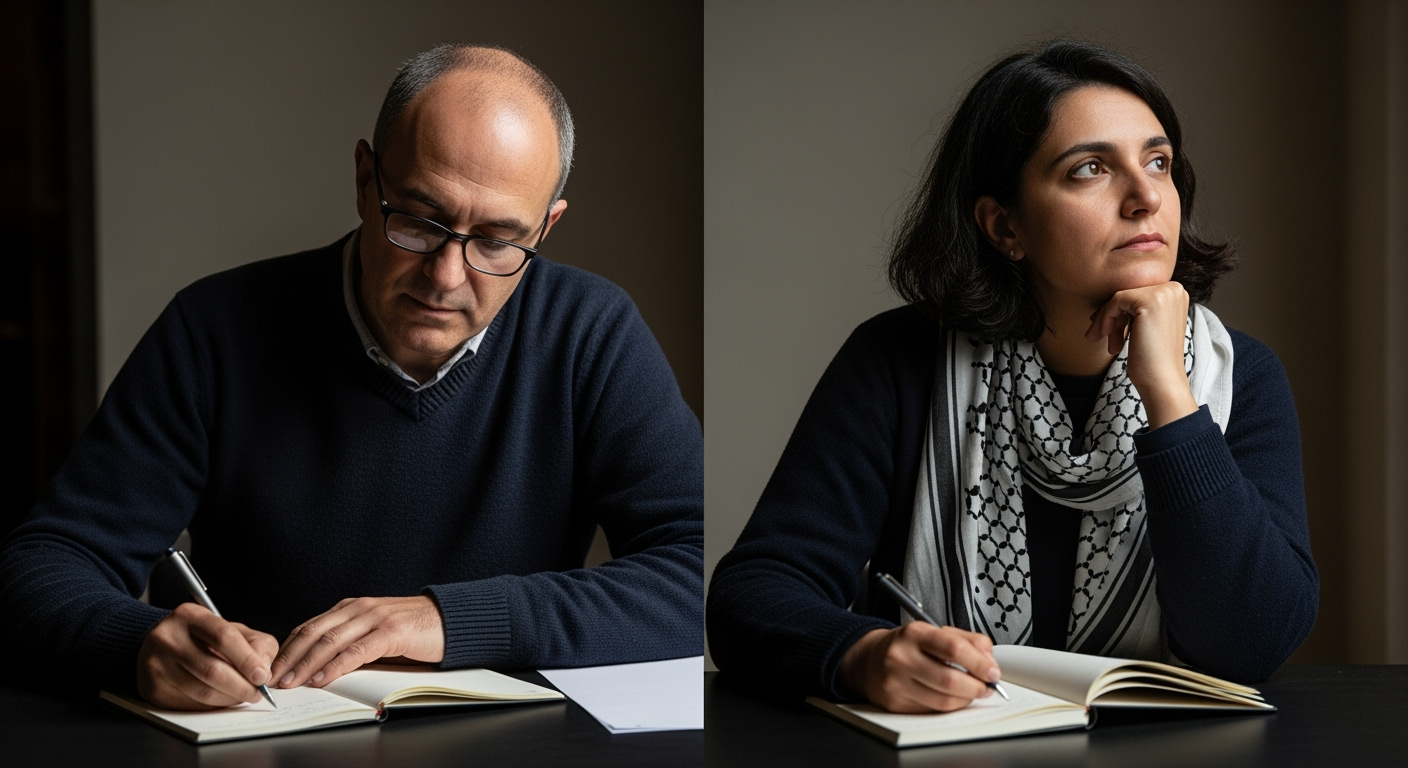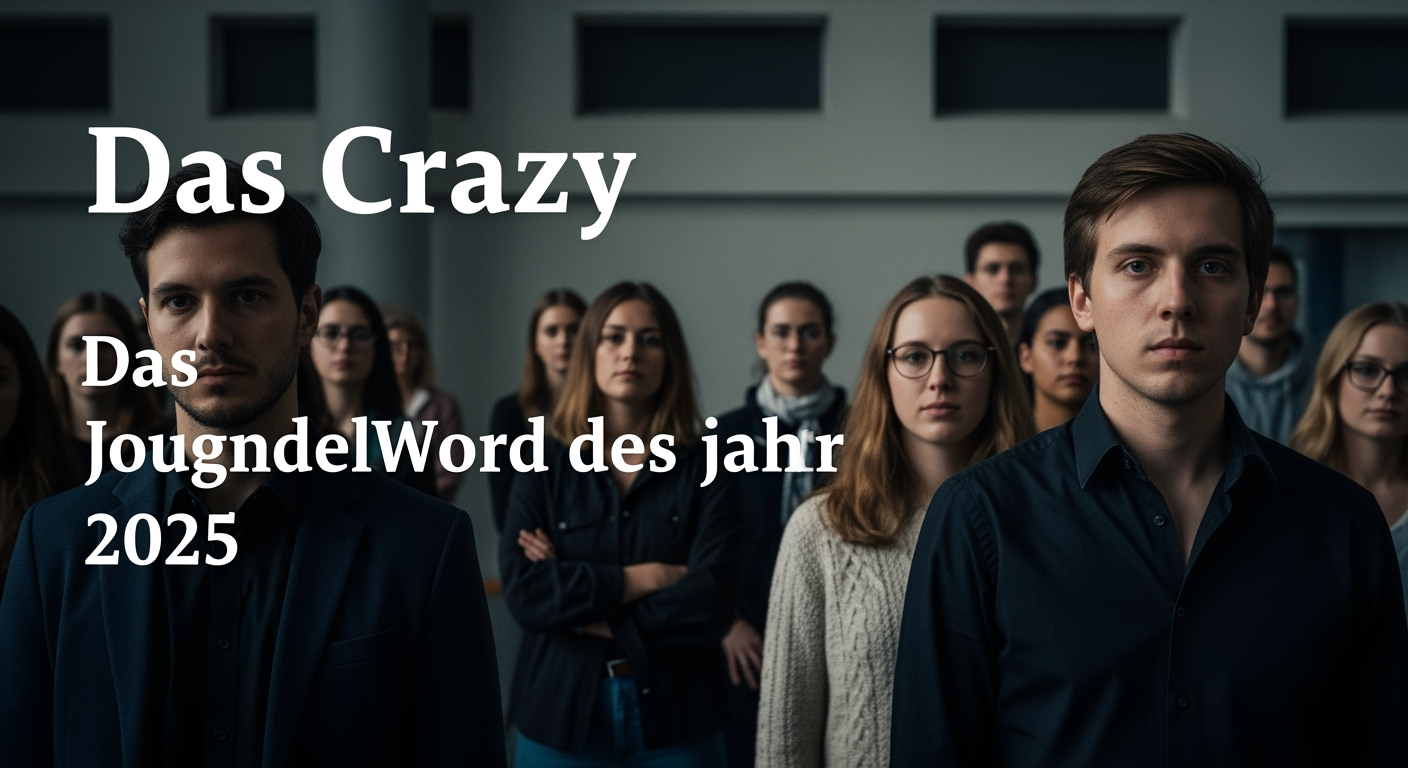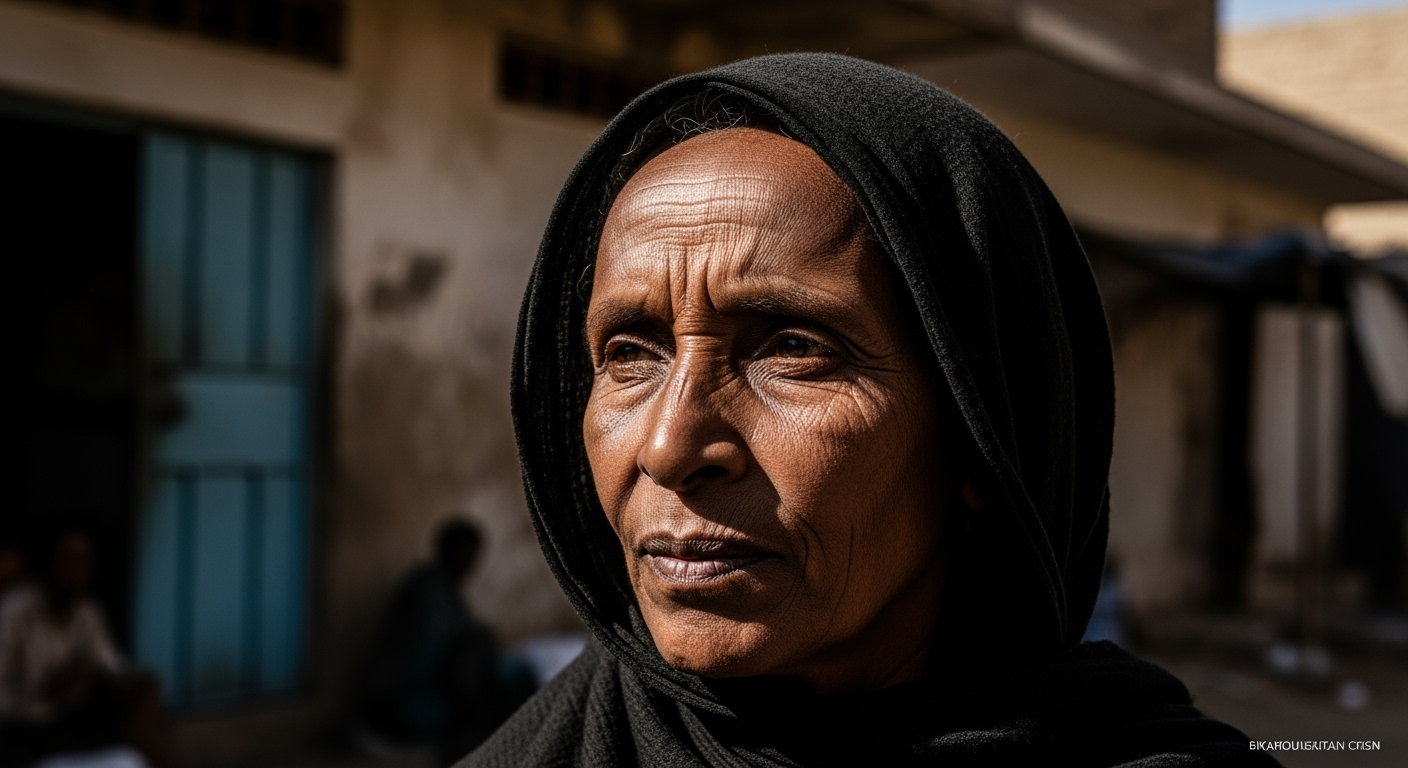Related Articles

Voices from the Crucible: Israeli and Palestinian Authors Grapple with Enduring Trauma

Daring Daylight Heist Shakes Louvre, Priceless Jewels Vanish





A new documentary titled "Khartoum" is shining a stark and deeply personal light on the devastating civil war in Sudan, transforming abstract statistics of displacement and conflict into individual stories of survival and resilience. Premiering to critical acclaim at major international film festivals, the film offers a unique, human-centered perspective on a crisis that has largely remained overlooked by global media, providing a poignant look at the lives upended by one of the world's most rapidly escalating humanitarian catastrophes.
The project began in 2022 with an ambitious vision: to create a "cinematic poem" celebrating the vibrant diversity and daily life of Sudan's capital, Khartoum. Four emerging Sudanese filmmakers—Anas Saeed, Rawia Alhag, Ibrahim Snoopy Ahmad, and Timeea Mohamed Ahmed—collaborated with British creative director Phil Cox to capture this essence. Their initial focus was on five distinct residents of Khartoum: Majdi, a civil servant; Khadmallah, a tea seller; Jawad, a resistance committee volunteer; and two young bottle collectors, Lokain and Wilson. Each director paired with an individual, aiming to document their experiences in a city brimming with political unrest following the 2019 overthrow of former leader Omar al-Bashir.
However, this artistic endeavor was abruptly disrupted on April 15, 2023, when the long-simmering tensions erupted into full-scale civil war between the Sudanese Armed Forces (SAF) and the paramilitary Rapid Support Forces (RSF). The conflict plunged Khartoum into chaos, forcing the filmmakers and their subjects to flee for their lives. The production funds originally allocated for filming were quickly repurposed to facilitate their evacuation and search for safety, scattering them across East Africa, including Nairobi and Egypt.
Faced with the impossibility of continuing traditional documentary filmmaking in a war zone, the team adopted an innovative and unconventional approach. From their new base in exile, primarily Nairobi, they used green screens, re-enactments, and even children's drawings to reconstruct memories, depict experiences, and bridge the gaps where direct filming was impossible or too dangerous. This creative pivot allowed them to continue their work, transforming the documentary into a powerful testament to resilience and resourcefulness, a "hybrid film" that blurred the lines between form and content.
"Khartoum" intricately weaves the individual narratives of its five protagonists, offering a deeply personal window into the broader conflict. The film delves into their pre-war lives, portraying their hopes and dreams against the backdrop of a city they loved and lost. Majdi, the civil servant, dreamed of pigeon racing; Khadmallah, the tea lady, aspired to own her own business; Jawad, the resistance volunteer, was a symbol of the city's revolutionary spirit; and the young boys, Lokain and Wilson, navigated the streets with an innocence that would soon be shattered.
The documentary captures their arduous journeys of displacement and their subsequent struggles to reconcile with what they witnessed and endured. Through the re-enactment process, often done collaboratively with other participants and filmmakers, they rebuild their homes, streets, and moments of terror on a green screen, allowing for a safe space to process trauma and share their stories. This approach not only provides missing footage but also fosters a unique and compelling form of collective storytelling, giving voice to individuals who might otherwise remain unseen and unheard. Reviewers have praised the film for its raw authenticity and its ability to immerse viewers in the subjects' experiences, emphasizing that the political context, while crucial, becomes secondary to the profound human impact of war. The intimate portrayal ensures that the complex political dynamics of Sudan are understood through the lens of human suffering and perseverance.
The human stories in "Khartoum" unfold against the backdrop of a humanitarian crisis described as the largest and fastest-growing displacement crisis globally. Since the conflict erupted in April 2023, an estimated 12 to 14 million people have been displaced, with millions fleeing across borders to neighboring countries like Chad, Egypt, and South Sudan. This represents more than one-third of Sudan's population.
The war has led to tens of thousands of deaths, though precise figures are difficult to ascertain, with one former U.S. envoy estimating as many as 150,000 casualties. Over 30 million Sudanese, more than half the country's population, are in dire need of humanitarian assistance. Food insecurity has reached catastrophic levels, with famine officially declared in parts of Darfur in August 2024, and 24 million people facing acute food shortages nationwide. The healthcare system has largely collapsed, with over 80% of hospitals in conflict zones non-operational, leading to widespread outbreaks of diseases such as cholera and measles.
Beyond the physical devastation, the conflict has had a profound impact on human rights. Civilians are subjected to frequent attacks, gender-based violence, and the recruitment of child soldiers. A staggering 15 million children are out of school, jeopardizing the future of an entire generation. Despite the overwhelming scale of suffering, the crisis in Sudan remains critically underfunded and underreported compared to other global conflicts, an issue that the documentary actively seeks to address.
"Khartoum" has garnered significant international recognition, receiving its world premiere at the 2025 Sundance Film Festival in January. It subsequently earned the Peace Film Prize at the 75th Berlin International Film Festival and the Bill Nemtin Award for Best Social Impact Documentary at the Hot Docs Festival. The film also received the Gilda Vieira de Mello Prize at the Geneva International Film Festival, recognized for its unique account of Sudanese lives caught between war and exile.
Critics have largely praised the documentary, with a 93% positive rating on Rotten Tomatoes and an average score of 7.5/10. Reviewers consistently highlight the film's success in intimately immersing audiences in the experiences of its subjects, demonstrating that "war is ultimately about its victims". Its "raw and unpolished" authenticity, coupled with the creative resourcefulness of its filmmakers, contributes to its powerful impact. The film's creators view it not just as a cinematic achievement but also as a vital piece of archive for the future and a "poetic tribute" to Khartoum and the Sudanese people, serving as a form of "resistance to war".
In a world saturated with information yet selective in its focus, "Khartoum" plays a crucial role in countering the "eclipse effect" where major global conflicts overshadow equally devastating but less reported crises. By providing a deeply human and empathetic entry point into the complexities of the Sudanese civil war, the documentary compels a wider audience to confront the realities faced by millions, ensuring that the stories and struggles of its people are neither forgotten nor ignored.
The documentary "Khartoum" stands as a powerful example of how art can transcend immense adversity to bear witness to human experience. Born from the chaos of conflict, its unique blend of personal storytelling, innovative filmmaking, and unflinching portrayal of reality offers a compelling argument for increased global awareness and action. By giving a face to the victims of Sudan's civil war, the film serves not only as a record of immense suffering but also as a testament to the enduring human spirit in the face of unimaginable tragedy.